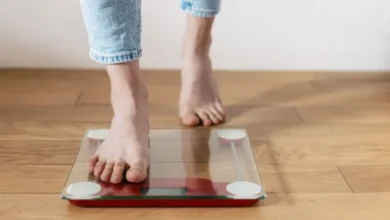Wellhealthorganic Stress Management: 5-Key Relaxation Tips

Wellhealthorganic’s stress management techniques focus on holistic wellness. Adapt natural methods for mental balance and stress relief.
Stress management is essential in today’s fast-paced world, where pressure from work, life, and personal expectations can overwhelm us. Wellhealthorganic understands the importance of maintaining a stress-free lifestyle for overall health and wellbeing. Their approach encompasses a range of natural strategies designed to promote mental equilibrium and mitigate the effects of stress.
Emphasizing organic practices, Wellhealthorganic advocates for a balanced combination of diet, exercise, and mindfulness to create a harmonious life. The commitment to organic principles extends to recommending products and habits that are beneficial for mental health and environmentally conscious. As individuals become increasingly aware of stress’s impact, Wellhealthorganic’s stress management solutions offer a grounded, sustainable path to tranquillity and health optimization.
Contents
- 1 Introduction To Wellhealthorganic Stress Management
- 2 Recognizing Stress Factors
- 3 Tip 1: Mindful Breathing Exercises
- 4 Tip 2: Progressive Muscle Relaxation
- 5 Tip 3: Meditative Practices
- 6 Tip 4: Balanced Diet And Hydration
- 7 Tip 5: Physical Activity And Exercise
- 8 Incorporating Relaxation Into Your Daily Life
- 9 Monitoring Progress And Adjusting Strategies
- 10 Conclusion
Introduction To Wellhealthorganic Stress Management
Stress touches everyone, young and old. Wellhealthorganic Stress Management offers keys to calmness. Our lifestyles need adjusting. We bring you ways to release tension and restore peace.
The Rising Need For Stress Relief
In today’s world, stress climbs higher. Jobs, technology, and life’s pace push us. We all seek an oasis for our minds. The quest for serenity is now more essential than ever.
- Increased work demands burden our days.
- Constant digital notifications disrupt our peace.
- Social pressures test our mental health.
What Is Wellhealthorganic Approach?
Wellhealthorganic proposes a natural journey to wellbeing. It combines age-old wisdom with modern science and focuses on whole-person care.
- Organic nutrition fuels the body.
- Mindfulness reignites the spirit.
- Exercise revitalizes the system.
Recognizing Stress Factors
Identifying what causes stress is crucial. Everyone’s life has stressors, and stress can come from work, relationships, or even daily routines. Understanding these factors is the first step in managing stress. A closer look at personal triggers can reveal ways to handle pressure better. Here, we’ll explore how to spot and manage stress.
Identifying Personal Stress Triggers
Stress is unique to each person. What bothers one may not bother another. Keeping a diary helps pinpoint specific stressors. Note what causes tension each day. Include:
- Time of day
- People involved
- Physical settings
- Type of Activity
Review the diary after a week. Look for patterns. Find common threads. Some triggers are easy to spot, while others may surprise you.
The Impact Of Chronic Stress On Health
Long-lasting stress hurts the body. It is linked to many health issues. Chronic stress can lead to:
| Physical Health | Mental Wellbeing |
| Heart disease | Anxiety |
| High blood pressure | Depression |
| Diabetes | Memory problems |
| Weakened immune system | Sleep issues |
Kids and adults both feel stress. Symptoms can include headaches or moodiness. If stress lasts, it can make you sick. Learning how to manage stress is essential.
Tip 1: Mindful Breathing Exercises
Welcome to the first step in mastering stress management with Wellhealthorganic: mindful breathing exercises. Breathing is a power tool that is readily available and straightforward. Yet, its simplicity does not hinder its profound impact on stress reduction. Here, you’ll learn techniques to harness this tool and integrate mindfulness seamlessly into daily life.
Techniques For Deep Breathing
To kickstart your journey, let’s explore some effective deep breathing techniques that you can practice anywhere, anytime:
- Diaphragmatic Breathing: Place one hand on your belly. Breathe in slowly through your nose. Feel your belly rise. Breathe out through your mouth. Notice your hand fall.
- Counted Breaths: Inhale for a count of four, hold for a count of four, and exhale for a count of four. This rhythmic pattern quiets the mind.
- Visualization Breathing: As you breathe, imagine a serene scene. With each exhale, visualize stress leaving your body.
These practices can lower your heart rate and blood pressure, promoting a sense of calm.
Integrating Mindfulness Into Your Routine
Introducing mindfulness into your daily routine provides a foundation for lasting stress relief. Consider these easy steps:
- Set specific times: End your day with five minutes of mindful breathing.
- Use reminders: Place notes in frequent spots, like your monitor or fridge, to prompt brief breathing exercises.
- Create a calming space: Dedicate a quiet corner for breathing practice, free of distractions.
Making these exercises a regular part of your day will build resilience against stress and enhance overall wellbeing.
Tip 2: Progressive Muscle Relaxation
Are you feeling the weight of the world on your shoulders? Ease that tension with Progressive Muscle Relaxation (PMR). PMR is a simple yet powerful technique that reduces stress by tensing and relaxing muscle groups throughout your body. Step into a world of calm with this effective stress management strategy!
Step-by-step Guide
Embark on your PMR journey by following these easy steps:
- Find a quiet and comfortable place to sit or lie down.
- Take a few deep breaths to centre yourself.
- Start with your feet and tense the muscles as hard as possible for about 5 seconds.
- Release the tension all at once and notice the feeling of relaxation.
- Move up through your body, repeating the tense-and-release for each muscle group.
- Don’t rush; take your time to feel the tension and the subsequent release honestly.
- End with the muscles in your face, squeezing your eyes shut and then releasing.
Regular practice makes PMR a quick, go-to method to unwind your mind and body.
Benefits Of Tension Release
- Reduces stress and anxiety levels.
- Improves sleep quality.
- Enhances focus and concentration.
- Decreases symptoms of certain health conditions like headaches and back pain.
- Promotes a greater sense of wellbeing and relaxation overall.
By letting go of the built-up tension in your muscles, PMR not only soothes your body but also steadies your mind. Turn to this method as a daily ritual, and feel the stress peel away from your life, layer by layer. Embrace the serenity; your serene sanctuary within awaits!
Tip 3: Meditative Practices
Embark on a journey of calm with meditative practices. Meditation works wonders for stress management. Whether you’re new to meditation or seasoned, exploring it can transform your approach to stress.
Different Forms Of Meditation
Several meditation styles exist to suit different needs. Let’s explore a few:
- Mindfulness Meditation: Focus on breath and present moments.
- Guided Meditation: Led by instructions, often through an app or class.
- Mantra Meditation: Repeat calming words or phrases.
- Movement Meditation: Combine gentle movements with mindful breathing.
- Transcendental Meditation: Use a personalized mantra for deep rest.
Creating A Conducive Environment For Meditation
A proper setting can enhance your meditation experience. Consider these steps:
- Choose a Quiet Spot: Avoid distractions and noise.
- Set a Comfortable Temperature: Ensure the room is neither hot nor cold.
- Minimize Clutter: A clean space promotes a clear mind.
- Soft Lighting: Dim or natural light can help relax your eyes.
- Add Elements of Nature: Plants or water features may increase calmness.
Tip 4: Balanced Diet And Hydration
Embracing a balanced diet and staying hydrated can transform your stress management routine. Let’s explore how these powerful elements fuel your body’s stress defences. Embark on this journey to a serene state of mind with Tip 4.
Essential Nutrients For Stress Management
To combat stress effectively, your body needs a robust line of defence. The following nutrients serve as your armour in stressful times:
- Vitamin C: Boosts the immune system and lowers cortisol, the stress hormone.
- Magnesium: Eases anxiety and improves sleep, which is crucial for stress relief.
- Omega-3 Fatty Acids: Fights inflammation and promotes brain health.
- Complex Carbohydrates: Steady blood sugar levels lead to a calm mind.
- Proteins: Supplies amino acids, the building blocks for neurotransmitters like serotonin.
Include colourful fruits, leafy greens, nuts, seeds, lean proteins, and whole grains in your meals. Each contributes to a well-rounded, stress-fighting diet.
Staying Hydrated For Optimal Performance
Water is your brain’s best friend. It powers your concentration, keeps mood swings at bay, and helps your heart rate stay even. Here’s how to make sure you’re getting plenty:
| Time of Day | Hydration Tip |
| Morning | Start with a glass of water to kickstart hydration. |
| Before Meals | Drink water 30 minutes before eating to aid digestion. |
| During Exercise | Hydrate every 15 minutes to replace lost fluids. |
| Throughout the Day | Keep a bottle nearby and sip regularly. |
Take note of the colour of your urine to monitor hydration. Aim for pale, straw-coloured liquid as a sign you’re well-hydrated.
Tip 5: Physical Activity And Exercise
Exploring the benefits of physical activity and exercise can revolutionize your stress management toolkit. Embracing regular movement is not just good for your body, but it’s also a powerful way to clear your mind. Whether it’s a brisk walk, a dance class, or lifting weights, the trick lies in finding a routine that sparks joy and keeps you committed. Let’s dive into why and how exercise can be your ally in combating stress.
Finding The Right Type Of Exercise For You
Finding an exercise that feels more like fun than work can reduce stress. Consider your interests: a dance class might be perfect if music gets you moving. Love the outdoors? Try hiking or cycling. Here’s a simple guide to discovering your ideal workout:
- Think about activities you enjoyed as a child – those can be a great starting point.
- Factor in your schedule and lifestyle – choose something that easily fits into your daily routine.
- Feel free to experiment – try different classes or workouts until one clicks.
The Role Of Exercise In Reducing Stress
Exercise isn’t just about building muscles or losing weight; it’s a stress reliever, too. Engaging in physical activity helps increase the production of your brain’s feel-good neurotransmitters, called endorphins. Regular exercise also helps:
| Benefit | Description |
| Boost mood | Acts a natural mood lifter, lowering symptoms of depression and anxiety. |
| Improve sleep | It enhances sleep quality, which can be negatively affected by stress. |
| Increase mental focus | It Sharpens cognition and helps you stay on task. |
| Relaxation | Encourages practices like yoga, which combines physical movement with meditation. |
By incorporating daily physical activity, you’ll improve your physical health and equip your mind to handle stress efficiently. Be sure to start; even small steps can lead to significant changes in managing daily pressures.
Incorporating Relaxation Into Your Daily Life
Incorporating Relaxation into Your Daily Life may seem like a luxury you can’t afford, but it’s essential for long-term wellbeing. Stress can overwhelm your daily routine. Yet, finding moments to unwind is crucial. Simple steps and consistency transform stress management into a sustainable part of life. Let’s dive into making relaxation a natural part of your day.
Simple Changes For Big Impact
- Take Short Breaks: Stand up and stretch every hour.
- Breathe Deeply: Practice 5-minute breathing exercises.
- Unplug: Allocate time to disconnect from digital devices.
- Enjoy Nature: Spend a few minutes outside each day.
- Declutter: Organize your space for a clearer mind.
Maintaining Consistency And Motivation
Building a relaxation habit requires regular practice. Set a daily reminder to pause and relax. Find a buddy for accountability. Track your progress in a journal. Celebrate small wins. Record how relaxation improves your day.
| Time of Day | Relaxation Activity | Duration |
| Morning | Meditation | 10 minutes |
| Lunch | Walk outside | 15 minutes |
| Evening | Reading | 20 minutes |
Start small, stay steady, and watch stress levels drop. Your journey to a relaxed life is essential. Take the steps today.
Monitoring Progress And Adjusting Strategies
Embarking on a journey to manage stress is a process of growth and self-improvement. Monitoring your progress and being flexible enough to adjust your strategies are crucial to ensure you are following the right path. This essential phase helps you identify what works best for you. Let’s explore the methods you can use to track your stress management journey effectively.
Keeping A Stress Journal
Recording your daily stress can unearth patterns and triggers. A stress journal should include:
- The date and time of each stressful episode
- A description of the situation
- Your immediate emotional and physical reactions
- The coping strategy you used
Analyze this data every week to make adjustments to your stress management plan.
When To Seek Professional Help
Monitoring your stress is one thing, but recognizing when you need extra support is another:
| Signs | Actions |
| Overwhelming anxiety | Contact a counselor |
| Stress affecting health | See a healthcare provider |
| Lack of improvement | Seek a therapist |
Feel free to seek professional help if stress becomes too much to handle alone.
Conclusion
Embracing effective stress management strategies is vital for wellbeing. The Wellhealthorganic approach shines, integrating holistic practices with modern science. Adopt these tips and notice your life transform. Balance and inner peace await as you master the art of stress management, paving the way for a healthier, happier you.



